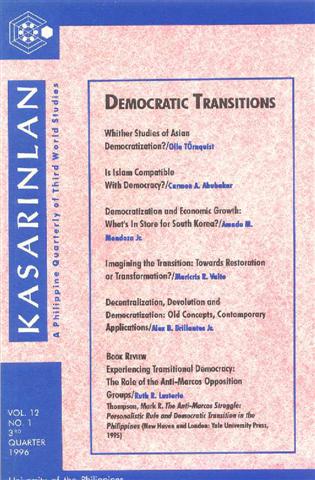Democratization and Economic Growth: What's in Store for South Korea?
Abstract
Is democracy incompatible with economic growth? To a number of states which have embarked on a process of transition from an authoritarian, state-led economy to a democratic, market-led one, the process of unraveling this thesis on “transitional incompatibility” has not been an easy one. A case in point is South Korea — the Economic dragon of East Asia — which, after having attained a considerable level of growth in the late 1970s, largely under the auspices of authoritarian rule, made headway towards democratization. Studies in recent years, however, show how its economy has been decelerating since the onset of democracy, even as others consider the converse true with economic growth and market forces undermining democratization. At the center of the paradox are the chaebols —seekers of state-assigned rents committed to the pursuit of national development, on the one hand, and political patrons who finance politicians with business money during elections, on the other. In the end, one finds consolation in the thesis that at per capita GNP levels as South Korea’s democracy is most likely to survive. The quality of democracy is, however, an entirely different story.
Published
2008-06-02
How to Cite
MENDOZA JR., Amado M..
Democratization and Economic Growth: What's in Store for South Korea?.
Kasarinlan: Philippine Journal of Third World Studies, [S.l.], v. 12, n. 1, june 2008.
ISSN 2012-080X.
Available at: <https://journals.upd.edu.ph/index.php/kasarinlan/article/view/848>. Date accessed: 16 sep. 2025.
Section
Features
By submitting a manuscript, the authors agree that the exclusive rights to reproduce and distribute the article have been given to the Third World Studies Center.



